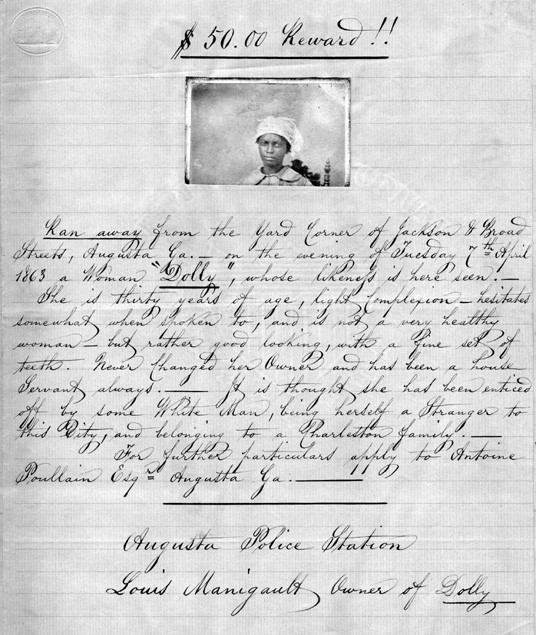Freedom on the Move project awarded NEH grant
By Yvette Lisa Ndlovu
Freedom on the Move (FOTM), a project being spearheaded at Cornell, has been awarded a grant from the National Endowment for the Humanities (NEH) to create a database of fugitive slaves in North America, using information in “runaway” advertisements placed by slave owners.
The ads, describing escaped slaves’ physical attributes, provide significant quantities of individual and collective information about the economic, demographic, social and cultural history of slavery, but they have never been systematically collected.
Edward Baptist, professor of history in the College of Arts and Sciences, and William Block, director of the Cornell Institute for Social and Economic Research (CISER), are the principal investigators for the project. The Digital Humanities Advancement grant provides $325,000 in outright project funding and allows for a potential $50,000 in matching funds. The project previously received an NEH Digital Humanities Start-Up Grant.
“The award will support up to three years of work by programmers and developers,” Baptist said. “This will allow us to move forward much more quickly in making this project accessible to an audience justly eager to have full access to these crucial sources, which reveal a history of African-American resistance to the racist surveillance and policing which protected the system of American slavery.”
The project team is beginning data collection and designing a database that will compile all North American runaway slave ads and make them available for statistical, geographical, textual and other forms of analysis. Some of the data collection will be crowdsourced, engendering public participation in the process of recording history.
The database will be a public history resource offering a unified access point to 100,000 runaway slave advertisements, which include details about slaves’ appearance, mannerisms, dress, family members, places of origin and destinations. The project will also provide insight into the human stories of individual experiences of slavery, while also illustrating statistical trends.
“Systematic collection of these richly detailed ads can start to serve as a quasi-census of sorts, providing important data about under-enumerated individuals too often absent from government records of the period,” Block said. “I’m pleased that CISER’s expertise with census and other large-scale data, and related technologies, can contribute to Freedom on the Move in meaningful ways.”
The database is a joint project of the Department of History, CISER and Cornell University Library, with collaborators including Mary Niall Mitchell of the University of New Orleans and Joshua Rothman of the University of Alabama.
“The project team has been making steady progress in revising our prototype database and web-based crowdsourcing application, based on thoughtful feedback from students and fellow scholars,” Baptist said. “Hardly a day has passed without an incoming email asking me when Freedom on the Move would be ready for public use by scholars, students, genealogists and museum audiences.”
Yvette Lisa Ndlovu is a communications assistant for the College of Arts and Sciences.
Media Contact
Get Cornell news delivered right to your inbox.
Subscribe